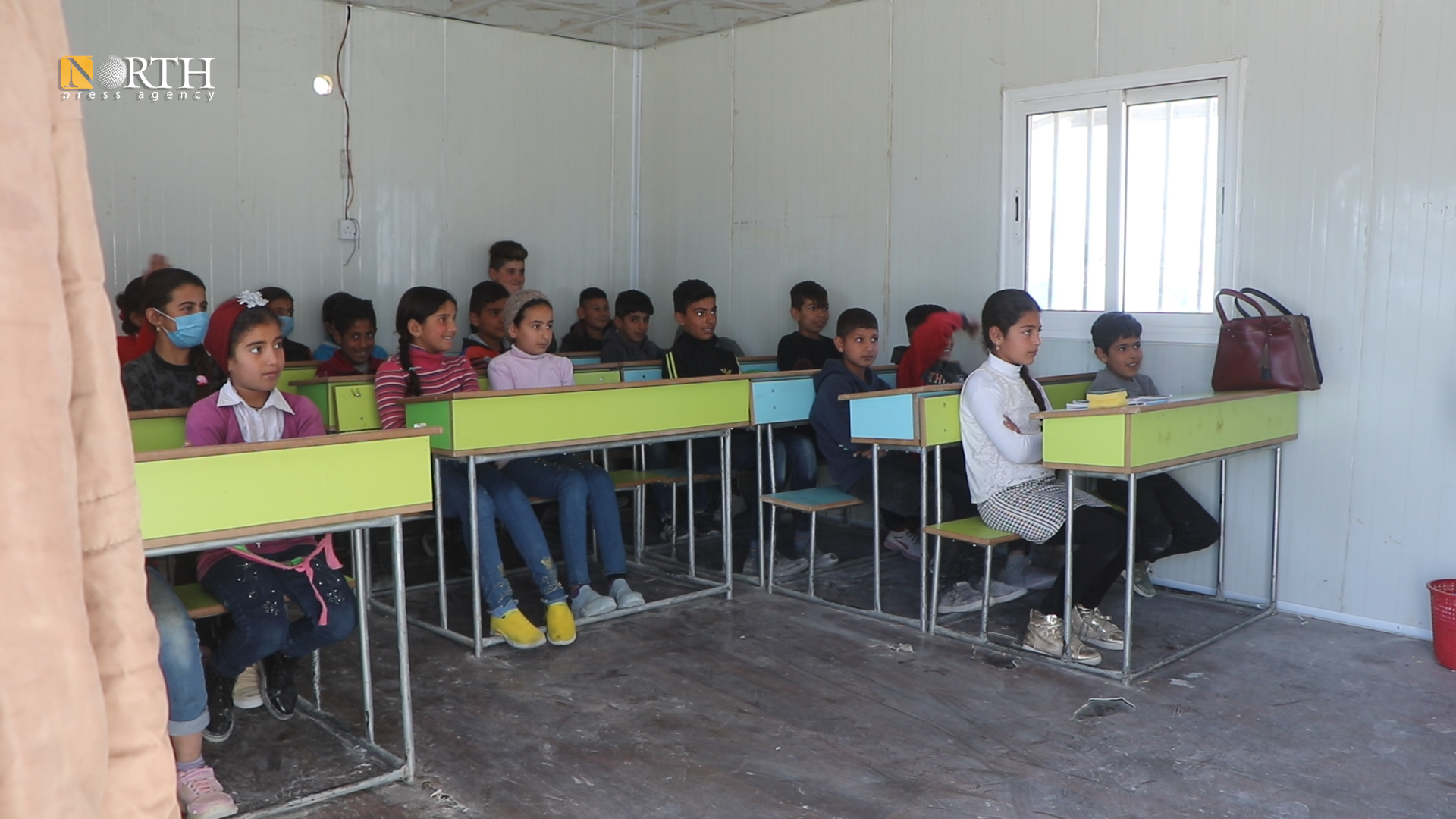HASAKAH, Syria (North Press) – Administrators and teachers in Sere Kaniye Camp, east of Hasakah, northeast Syria, say that the lack of potential of the Autonomous Administration in North and East Syria (AANES) and the absence of support of the organizations concerned with children has delayed the teaching process in the camp.
On February 7, the Education Committee in Jazira region opened a school in Sere Kaniye Camp.
The school consists of 14 classrooms; ten tents and four prefabricated rooms.
Huge numbers
On October 9, 2019, Turkey and its affiliated armed opposition groups attacked Sere Kaniye and Tel Abyad. The attack resulted in the displacement of 300,000 civilians, according to statistics from the AANES.
Sere Kaniye Camp includes 2,600 families, and work is underway to prepare an additional section of the camp to receive more displaced people, according to the administration of the camp.
The Administrator of the School Committee in Washokani and Sere Kaniye Camps, Mohammad Hajjo, said that due to the huge number of students and the lack of classrooms, the school day is divided into four periods, with two hours dedicated to each classroom per day.
“The elementary students only receive education now, because there are not classrooms for the preparatory and high school stages,” Hajjo added.
The camp includes about 3,200 students of all stages, including 1,700 in the elementary school, he pointed out.
“Two hours of teaching is very limited, especially as the students have been cut off from learning since they fled Sere Kaniye in addition to the camp not being a suitable place for teaching,” he noted.
Psychological support
Hajjo stressed the necessity of providing study supplies like notebooks, bags, and stationary from the organizations because most families cannot afford to secure them.
Nivin Yusif, an English language teacher in Sere Kaniye Camp, believes that the students need psychological support “because they left their city and their school two years ago, so they need psychological support to complete the teaching process properly.”
“The students’ interruption affected them, and some students are in the fourth grade instead of being in the sixth or seventh grade,” Yusif added.
“Some students are very weak; that is why they should have a special classroom to learn the basics,” she pointed out.
The education supervisors in the camp believe that it is not possible during the current situation, especially for the preparatory and high school stages have not received education yet due to the lack of classrooms.
Yusif Seydo, a displaced person from Sere Kaniye, expressed his joy as his sisters returned to study after one year and a half of interruption.
Seydo believes that his sisters’ understanding of the classes is poor because they were out of education and did not think of it. “The only thing that mattered to them was when they would go back to Sere Kaniye and go back home,” he explains.

